The International Commission on Nobility and Royalty
Vantagens da Monarquia (em Inglês)
Catherine Goddard Clarke in her book Our Glorious Popes wrote:
We have been slowly and deliberately taught that monarchies and kings are bad things. . . .
Scarcely anyone is ever told any more that France, Spain and
Portugal, Poland and Hungary, England and Sweden, all had kings and
queens who ruled their lands gloriously and brought untold happiness and
well-being to their subjects. (p. 59) (www.angelfire.com/in3/theodore/opinion/articles/coulombe/monfaq.html)
People are not taught the great truths about the unfolding and
development of civilization as brought about by great menwho sat upon
the thrones of the earth. Leopold von Ranke (1795-1886), esteemed by
some as the world’s best-equipped historian, concluded that monarchy has
done more good than we will ever know. What these men have done is one
of the most important factors in raising Western civilization to a place
of power in world affairs. (R. H. Tawny, in Religion and the Rise of Capitalism, and Max Weber, in The Protestant Ethic and the Spirit of Capitalism)
Monarchy’s contributions unfortunately have been blurred or obscured
and lost to history. It is hoped that in this day and age, we may see
more clearly and thus make better choices for a better future.
The following is offered as food for much thought. Its purpose is to show how constitutional monarchy can be an investment in a future of greater freedom, more responsible and effective government, and progress as nations determined to bequeath such treasures as a glorious legacy to future generations.
(1) Advantage: Constitutional monarchs make better ceremonial heads of state.
All countries require a ceremonial and political role of their head of state. However, when you combine the two functions into one person, it creates problems. Commenting on this issue Theodore Harvey wrote:
. . . It seems to me that it is not possible for an elected leader (i.e. a politician) to truly represent all the people of his or her country since inevitably a significant portion of them will have favored someone else and will be opposed to and angered by decisions he or she makes. This is why I think that the person who hosts visiting leaders, travels abroad to represent the country, cuts ribbons, honors distinguished citizens, and speaks at times of national concern and celebration, should not be the same person who has raised large sums of money for elections, is obliged to criticize other politicians, and by definition must make controversial decisions. Republics such as France attempt to solve this problem by having both a president and a prime minister. This is ultimately an unsatisfactory approach, since both leaders are still politicians and both posts are disputed. A hereditary monarchy devoid of political power is the easiest way of providing an apolitical head of state. With few exceptions, twentieth-century European monarchs have understood this well and fulfilled their tasks admirably. (www.angelfire.com/in3/theodore/opinion/whymon.html)
But the point is, a king or queen as head of state can bestow honors free from the taint of partisan politics, which in itself is a huge advantage.
(2) Criticism: Constitutional monarchies are undemocratic.
Did you know:
That the seven oldest continuous democracies are the United Kingdom, the United States, Switzerland, Sweden, New Zealand, Canada and Australia? Five of them have British origins and five of them are constitutional monarchies.
That the most free, tolerant and stable societies in the world today tend to be constitutional monarchies – including The Netherlands, Denmark, Norway, Sweden, Canada, Australia, New Zealand and the United Kingdom?“
That of the 24 advanced economies in the Organization For Economic Cooperation and Development, half are constitutional monarchies. . . .” (www.norepublic.com.au/acm_cm_benefits.htm)
Monarchy does not stand in the way of the progress of man. In fact, some of the most progressive and most democratic nations on earth have monarchies. The point is, monarchy is eminently compatible with democracy. It strengthens and enriches it and keep it from extremes by adding another important check and balance.
In restoring Monarchy in Spain King Juan Carlos I has shown intelligence and sensitivity, to the point of placing the good name of the Monarchy at the highest level in modern Spanish history both among Spanish people and in other countries. The Royal Family’s open and straightforward style, their simple way of life, the absence of a Royal Court and the support given by the King, the Queen, the Crown Prince and the two Infantas to various moral and humanitarian causes have succeeded in placing the Crown above political and ideological confrontations within a period of a few years, turning it into the final guarantor of democratic values and institutions. (www.sispain.org/english/history/monarchy.html)
Too many people are misinformed about democracy and monarchy and do not realize how democracy is fortified, enhanced and protected by a royal Head of State.
(3) Criticism: Only a member of the royal family can be the head of the nation in a monarchy.
Obviously that it a true statement, but as Theodore Harvey commented, “. . . the office of president of a modern republic, with its intimidating financial, personal, and educational requirements, is hardly open to all.” The office of head of state is exclusive, not inclusive in nature. It always has been and always will be whether it is a monarchy or a democracy. (www.angelfire.com/in3/theodore/opinion/whymon.html)
(4) Criticism: Monarchies are extravagant and a waste of money.
To the contrary, monarchies are generally less expensive, so much so that they represent a great bargain saving millions for more important matters. The point is, monarchy is cost effective.
When the cost of monarchs and presidents are compared, it becomes even more clear what is in the best interests of most nations. (See expenses of presidents and expenses of monarchies at: www.put.com/~monarchy/archiveindex.html) This is especially obvious when one considers the hundreds and millions of dollars spent on winning elections—money that might have been used for really important things like hospitals, schools, care for the elderly, defense and other important but neglected services.
In addition, it would be extremely costly to change from a constitutional monarchy to a republic. Accurate estimates to make a republic out of Australia, for example, exceeds 2.5 billion pounds for just the first ten years. Wow. Talk about waste! This tops most arguments on this subject. Especially considering all the benefits of monarchy, such a move seems particularly foolish, even ridiculous. (www.norepublic.com.au_content&task=view&id=649&Itemid=35)
When legislators blame monarchy for inconveniences that would prevail in any form of government, they reveal their true colors. They are either extremely ignorant or extreme greedy—wanting to become the new head of state if they can overthrown the monarchy. In other words, they would gladly ruin a good thing, something shown by political scientists to be superior, not only in theory, but in practice, to a president. This is not the work of a stateman who loves his country. But it is not beyond the disposition of an ambitious politician who has no scruples or common sense. Constitutional monarchy is associated with the richest and most free and prosperous nations on earth. (See: “#24” below or another study described in the article on “Ideals“)
It is easy to forget in Great Britain that Queen Elizabeth is head of state not only of one small island nation, but also of the 53 nations of the commonwealth, with a combined population of 1.5 billion. In short, she is head of state to more than one quarter of the earth’s inhabitants. . . . At home, monarchy is at the center of a multimillion-dollar tourist industry. (And Elizabeth II donates more than $90 million a year to the treasury.) (Harold Brooks-Baker, “Why the monarchy must stay,” Newsweek, March 11, 1996)
Adrian Cornell, in a short article on the current royal family of Great Britain, wrote that even though the cost is £37m a year or 60p per person to support them, after all is said and done, the government gets back £2.40 per person. In other words, the monarchy is dirt cheap–a great bargain if there ever was one. Instead of costing the government and the people money, it pays and it pays in the millions. That’s an astonishingly good deal. Mr. Cornell wrote:
Actually, our monarchy gives back more than it takes. In the 18th century, George III gave up revenues from his lands in return for a fixed income from parliament. Nowadays, the Treasury gets around £180m a year from this agreement. So the net result is that we “get back” around £2.40 each per year.
Comparing this to the Italian republican presidency, each Italian citizen pays out about a pound a year to support it, plus millions for elections. Monarchy is general is far less expensive and more effective. Continuing, Mr. Cornell explained that of “His [Prince Charle's] 16 charities (“The Prince’s Charities”), 14 of which he founded personally, raise over £100m a year for good causes, making them the largest multi-cause charitable enterprise in the UK.” And he and the Queen pay for their own living expenses as well as for other close family members. The point here is, constitutional monarchy is not only the best kind of government for the good and benefit of everyone involved, it is also the most cost/effective. And when one considers the country is receiving “the benefits of 1,000 years of stability and continuity, including the world’s oldest democratic constitution, one really must consider this the deal of the century.“
(http://72.14.207.104/search?q =cache:URRr0txsAkcJ:www.bulbmag.com/Downloads=en&gl=us&ct=clnk&cd=97)
L. L. Blake in his introduction to the book Royal Families Worldwide written by Mark Watson declared:
Through various trusts and business initiatives, HRH Prince
Charles has actually helped to create work and employment for over
100,000 young people. The Prince has supported a return to basic
educational principles, including a love for the language and its
greatest exponent, Shakespeare. (p. ix, see “Books“)
There are a lot of major contributions this man has made to his country little known to the public. Monarchy should be creative and forward looking—something that Prince Charles already exemplifies even though he is not yet the King of England and the Commonwealth nations.
Another great example of a royal benefit is the Crown Princess of Denmark. Joanne Leyland on February 7, 2007 declared, “Not only is constitutional monarchy unrivalled for providing a stable and effective democratic constitutional system, it often provides substantial financial benefits. (See: www.theroyalist.net) It is estimated that the Princess is the world’s most valuable royal in terms of generating trade and promoting tourism. “According to Simon Anholt, an expert in international branding, the former Sydney estate agent is worth literally billions thanks to her ongoing popularity, one which regularly sees her featured as a cover girl on newspaper and magazines worldwide.” (Ibid. & www.norepublic.com.au/index.php?option=com_content&task=blogcategory&id=0&Itemid=8&limit=16&limitstart=128)
Monarchy can be a true gold mine if properly showcased. Tony Abbott, the federal minister of health of Australia, in a special fund raising meeting for mental health in which HRH Crown Princess Mary attended, said,
“I want to thank Princess Mary for reminding a sceptical world of the magic that can be involved in the monarchy,” the federal health minister told the crowd, which responded with applause. “A constitutional monarchy is a marvelously stable system of government and the Crown can be a symbol of stability and continuity in a difficult and constantly changing world. (“Fed: Magic Mary revamps monarchy: Abbott,” AAP General News (Australia), March 3, 2005)
Theodore Harvey made the following important point on a different kind of contribution that kings and sovereign princes have made which years later have proved to be blessings. He wrote:
Moarchs have often been criticized for spending large amounts of money on projects which did not appear to benefit the general public, typically constructing opulent palaces for their comfort and lavishly funding the arts for their entertainment. Yet aside from the fact that this royal “extravagance” provided jobs for generations of architects, artisans, musicians, dancers, and artists, what have been its long-term consequences? Some of the most beautiful buildings ever built (many of which are now open to the public, even in surviving monarchies), much of the greatest music ever written, incomparable art treasures, magnificent dance traditions—the unparalleled enrichment of Europe and the world’s cultural heritage must rank as one of monarchy’s greatest achievements. Even when the arts were not directly linked with royal patronage, it seems to me that by favoring excellence over equality, monarchy tends to foster an atmosphere which is more conducive than republicanism to high artistic achievement. (www.angelfire.com/in3/theodore/opinion/whymon.html)
(5) Criticism: Each country should have an elected head of state.
“If [a] . . . Head of State were to be elected, the position would diminish in value, because the choice would simply reflect the transient political mood of the day, or the personal popularity of the candidate, . . . [instead of the suitability of the person].“ (www.geocities.com/cox_nz/factsheet4.htm) Besides as Gordon Medcalf stated in 1997, “. . . the essentials for election . . . appear to be ruthless ambition, access to vast wealth, [and] reckless promises . . . ,” immense power as well as hidden or disguised corruption. It is not a healthy system—it never promotes the very best in man. All too often, nice guys, the good and honest of the earth, finish last in such a system. It is the power hungry who can raise a shameful amount of money and those who are very skilled and talented at manipulation that generally get elected to the highest offices of the land. Hitler, after all, was democratically elected or voted in. He is an example of the pinnacle of corruption. He said, “Sooner will a camel pass through a needle’s eye than a great man be ‘discovered’ by an election.“ (www.brainyquote.com/quotes/authors/a/adolf_hitler.html)
The point is, the head of state must be beyond criticism, must be above politics, must be someone that can be trusted and admired.
As one 19th Century legal observer saw it, politics is synonymous with “disappointed ambition, thirst for power, pride, corruption, party spirit, faction, patronage; perquisites [gifts, bribes or profits from special interest groups attempting to buy legislation], [fickle, capricious] fame, tangling alliances; priest-craft and spiritual wickedness in high places.” (Glenn C. Altschuler and Stuart M. Blumin, Rude Republic, Princeton University Press, 2000)
A settled monarch is secure in his position and need not cling to corrupting politics and special interest manipulators to stay in office. A democratic head of state, on the other hand, “having no title [or right] to his office save that which lies in the popular will, is forced to haggle [grovel] and bargain like the lowliest office-seeker.” (H. L. Mencken. Notes on Democracy. New York: Knopf, 1926, p. 181) Unfortunetly, the only skill many of today’s elected leaders possess is the ability to get and keep office and stay on the gravy train. We don’t need more spineless politicians. We need men of character and integrity, statesman and patriots, who are not swayed by the corrupting forces of special interest groups, big money and power, but instead act out of principle and a deep, abiding commitment to do what is right. The point is, a monarch being in a position to be above all “. . . party politics, . . . has a [infinitely] better chance than an elected leader of becoming the personified symbol of his country, a focus of patriotism and even of affection [reverence and love].” (www.angelfire.com/in3/theodore/opinion/articles/yeager.html)
Joseph-Marie, Count de Maistre (1753-1821) was one of the most influential spokesmen for counter-revolution in the dark and treacherous period immediately following the French Revolution of 1789. He contended that an elected king would be acceptable. He wrote: “Men never respect what they have made. This is why an elective king never possesses the moral force of a hereditary sovereign because he is not sufficiently noble, that is to say, he does not possess that kind of grandeur [majesty and splendor] independent of men which is the work of [long tradition and] time . . . .” (http://maistre.ath.cx:8000/sovereignty.html)
In addition to this magic of royal or imperial grandeur, in terms of protecting freedom, David Hume (1711-1776), a Scotish philosopher and historian, wrote that the crown is such a high prize. It is “. . . too high a reward to be given [by election]. . . .” (Hume’s Works, III, p. 101) It is the most important and highest office of the land. As such it “. . . will always induce the candidates to employ force [corruption,] money or intrigue [or dirty politics] to procure the votes of the electors, so that such an election will give no better chance for superior merit in the prince than if the state had trusted to birth alone for determining the sovereign.” (Ibid.) John Adams concluded, “Mankind have not yet discovered any remedy against irresistible corruption in elections to offices . . . but [by] making them hereditary.” (www.put.com/~monarchy/tcs_intro.html) In other words, what is needed is a hereditary king or queen as head of state. Political research has shown that all nations that embrace such a constitutional monarchy with adequate checks and balances enhance their prestige before all nations, promote stability, prosperity and the well-being of their countrymen. (See: “Ideals“)
Considered to be one of the greatest or most astute of historians, David Hume concluded from decades of study based on logic and the experiences of the ancients, that it should “. . . be pronounced as a universal axiom in politics that a hereditary prince [a king], a nobility without vassals [a House of Lords], and a people voting by their representatives [a House of Commons] form the best monarchy, aristocracy, and democracy [available on eart]. (Hume’s Works, III, p. 101) Why a hereditary royal or imperial house and an upper legislative chamber of hereditary lord is so important will be explained in greater detail as we proceed in this article. (See: “Criticism: The nobility is a reflection of they grandeur of the monarchy, but of what real use are they now?” This kind of government puts a check on unrestrained ambition.
(6) Advantage: Constitutional monarchy provides checks and balances.
It is a known historical fact, that Hitler and many other tyrants or dictators were elected. There seems to be no end to the evil that could prevail in a democracy without proper checks and balances built into the systems of government to prevent such atrocities. Theodore Harvey gives a good example of modern day treasonous behavior on the part of elected officials in Europe:
Elected leaders in Europe have for some time now been primarily occupied with plans to erode their nations’ sovereignty with European unification and their cultural harmony with mass immigration, a dual betrayal which never would have been contemplated in the days when the monarchs were in charge and on which the populations of most countries have never been allowed to vote. This irony, as well as the EU’s attempt to crush Austria’s Freedom Party (while the continent’s Communist parties, unapologetic heirs of history’s bloodiest ideology, are uncriticized), suggests that democracy tends to produce leaders who do not actually believe in democracy, defeating its own allegedly noble purposes. (www.angelfire.com/in3/theodore/opinion/ideology2.html)
This same thing is happening in Nepal where the Maoists supposedly want democracy, but have confiscated royal property or robbed the royal family of what they lawfully owned (a typical communist ploy). Instead of creating fair play, they have stacked the deck. They actively campaigning against the king, but undemocratically refuse to allow the king to defend himself or say anything, much less, campaign for his important position. They muzzled him. The truth of the matter is as plain as day. The Maoists have not changed, they do not want real representational democracy, they want to set up a repressive communist regime, but are hiding behind the facade of wanting freedom and liberty. They are merely biding their time looking forward to an ugly takeover if they cannot get the people to give up all their rights to them otherwise. The Maoist’s determination to cram their views down the people throats and distort reality has resulted in so many acts of atrocity and terrorism to the point of killing over 13,000 of their countrymen and ruining the agriculaturally based economy. On May 28, 2009, the communist led a one house assembly and have destroyed an important check on their ambition (the monarchy) so that they can set up a repressive government. Their next task, which they have openly proclaimed is to destroy the democracy. As of August 16, 2008, they managed to push their one house Parliament into electing a major warlord, a traitor and insurrectionist become the Prime Minister. It is a sad day for the future of this people. The Maoist’s have done a lot of damage to this country and its people in the last three years, at least 100 times more damage, ruin and horror, than the monarchy ever did in 240 years.
What is truly needed in this world are not less checks and balances, but more, to prevent such trageties like what took place in Nepal, which may have an ugly future. The sovereign veto power in a hereditary monarchy and two parlimentary houses are best and needed to protect individuals, families and property from the corrupting influences and forces that would gladly rob the people of their inalienable, God-given rights for freedom and liberty.
As an overall conclusion, Hans-Hermann Hoppe, who wrote Democracy: The God that Failed concluded:
From the viewpoint of those who prefer less exploitation over
more and who value farsightedness and individual responsibility above
shortsightedness and irresponsibility, the historic transition from
monarchy to democracy represents not progress but civilizational
decline. (http://72.14.253.104/search?q=cache:Id-YxMsvUrsJ :www.mises.org/journals/jls/11_2/11_2_3.pdf+monarchy
This statement will become more and more clear as one continues to read this article. (See also “Ideals“)
(7) Criticism: Monarchy is Un-American
It seems to be traditional that Americans are either anti-monarchy or ambivalent toward it. However, back in the early days of the United States, it was not so. For example, William Giles in 1802 states in Congress:
A great portion of the human mind has been at all times directed toward monarchy as the best form of government to enforce obedience and insure the general happiness; whereas another portion of the human mind has given a preference to the republican form as best calculated to produce the same end. (http://en.wikisource.org/wiki/History
Unknown to most Americans is the fact that most of the founding fathers of this nation believed in monarchy. For example, John Adams (1735-1826) was one of them, yet he ranks as one of the greatest of American political thinkers of his time. He was not only the second president of the United States, he was on the committee responsible for the Declaration of Independence. He wrote A Defense of the Constitutions of Governments of the United States of America (3 volumes, 1787-1788) and Discourses on Davila (1805), which profoundly influenced the thinking of his countrymen. But few people knew that the famous John Adams believed that limited monarchy, that is, a constitutional monarchy was the best kind of government. He believed “all well regulated governments are monarchic . . . [he was] favorable to monarchy, and to an order of nobility. . . .” But he felt “that it would be long before Americans would be reconciled to the idea of a king.” (www.4literature.net/Mercy_Warren/John_Adams_s_Monarchical_Ideas)
Alexander Hamilton, who wrote the preamble of the Constitution, also believed that a “limited monarchy” represented “the best form of government” on earth. (http://history-world.org/hamilton.htm) But, like John Adams, Adam Smith, John Dickenson and Gouverneur Morris, he did not believe Americans could readily swallow such a proposal. Unknown to most people, the Federalists knew they could not speak openly about this, but verily believed in the “need for more monarchy.” “Even [James] Madison, who was as devoted to republicanism as any of the Founders, was in 1787 sufficiently disillusioned with the democratic consequences of the Revolution to see some advantages in monarchy.” George Washington was encouraged to become king. (http://web.princeton.edu/sites
The first five Presidents of the United States perpetuated the ideal of a virtuous ruler all the way to Andrew Jackson. They believed in the institution of a “patriot king,” the true father who loves and cares for his people, who stood above party corruption and ruled selflessly in their behalf. In the words of Henry St. John, 1st Viscount of Bolingbroke, an eighteenth-century political philosopher, who had a profound influence on the founding fathers, “Nothing can so surely and so effectively restore the virtue and public spirit, essential to the preservation of liberty, and national prosperity, as the reign of such a prince.” (Ralph Ketchum, Presidents Above Party: The First American Presidency 1789-1829, pp. 73,89,94-95,100-101,115,125,130-133) ()Thesehttp://socserv2.socsci.mcmaster.ca/~econ/ugcm/3ll3/bolingbroke/king.html founding fathers, who believed in a “republican monarchy,” another word for constitutional monarchy, were considered by some to be the best or wisest men on the earth–the best political thinkers of their time. Perhaps the next two sections might explain why they believed the way they did.
But there is another way that Americans favor and have always favored the basic principles of monarchy. Consider the following observation on the Supreme Court:
Most Americans feel that the defenders of their rights against government encroachment would be the Supreme Court. Members of the Supreme Court are not democratically elected, but appointed (and therefore feel no special vassalage to the special interests that plague republican politicians) and they are there for life, removable only through resignation or through committing some infamous crime. Therefore, they feel no special obligation to those that appointed them. They are completely free to be independent in thought and conscience.
THAT is [also] the advantage of monarchy. . . . I hope that gets the point across. To most people the Supreme Court is sacred and the ultimate protector of their rights. Monarchy would be no different, except it wouldn’t be a panel of nine Justices, but the benefits would still apply. (http://neofeudalist.blogspot.com/2008/01/americans-already-believe-in-monarchy.html)
The benefits of monarchy are further explained through the following ctiticisms and advantages.
(8) Criticism: Isn’t democracy the best kind of government one could ever hope for?
Actually, true democracy doesn’t really exist. Charles Coulombe, a well-known Catholic philosopher, political thinker and writer, said, “. . . No regime is, can be, or ever has been democratic!” (www.angelfire.com/in3/theodore/opinion/articles/coulombe/monfaq.html) There never has been a “pure” democracy, which is good, because “pure” democracy really amounts to mob rule, rather than the rule of law. “. . . By its [very] nature and practice every democratic action is a mob imposing its will on others. . . . The philosophy of democracy is; might makes right.” That is, majority rule. Benjamin Franklin declared that, “Democracy is two wolves and a lamb voting on what to have for lunch.” Erik von Kuehnelt-Leddihn reminds us that, “Fifty-one percent of a nation can establish a totalitarian regime, suppress minorities and still remain democratic.” (http://freedomkeys.com/vigil.htm) In other words, the majority can prey on the weak, who really cannot defend themselves. “There is no intrinsic justice in democracy, it’s just mob rule. [Pure] democracy is [in fact] the surrender of individual freedom to mob rule.” (www.bcrevolution.ca/you_have_authority.htm) It means whatever is popular or the whim of the day would win rather than correct principles, which puts the principles of law and order and justice at risk. Pure democracy is an extreme form of government.
Noting the extreme danger inherent in an unbridled democracy and observing the effect or results of governmental experiments in ancient times, Seneca wrote that “democracy is [or can be] more cruel than wars or tyrants.” (www.gov.ph/forum/thread.asp?rootID=61011&catID=15) Why? Because in a pure democracy, nothing would be in place to prevent the people from voting to legally confiscate all the earnings of the rich and wealthy or to rob the poor. Alexander F. Tytler wrote:
[Unlimited] democracy cannot exist as a permanent form of government. It can only exist until the voters discover they can vote themselves largess [gifts of money] out of the public treasure. From that moment on, the majority always votes for the candidate promising the most benefit from the public treasury, with the result that democracy always collapses over a loose [or irresponsible] fiscal policy. . . . (http://lorencollins.net/tytler.html)
The point is, anything goes in mob rule. There are no checks and balances to keep things from getting out of hand, which is why Alexander Hamilton said to the Constitutional Convention in 1787:
I believe the British government forms the best model the world ever produced… All communities divide themselves into the few and the many. The first are the rich and well born, the other the mass of the people… The people are turbulent and changing; they seldom judge or determine right. Give therefore to the first class a distinct, permanent share in the government. They will check the unsteadiness of the second… Nothing but a permanent body can check the impudence of democracy. (www.romanitas.ru/eng/THE%20AGE%20OF%20REVOLUTION%20(9×5).htm)
Fortunately, pure democracy does not exist because as Mr. Coulombe wrote, all the “important questions are rarely decided by the people.” Legislatures decide these things. No country is truly a pure “democracy,” they are representative democracies. (www.angelfire.com/in3/theodore/opinion/articles/coulombe/monfaq.html) (www.basiclaw.net /Principles/Popular%20sovereignty.htm) John Stuart Mill (1806-1873) declared that the business of government is “by the few for the many.” And hopefully, the rule of law will prevail and not the rule of mobs or even public opinion. Alexis de Tocqueville (1805-1859) in his study of representative democracy believed that the tyranny of misguided public opinion or what is popular or the fad of the times could prove more oppressive and dangerous or more hurtful and misleading than the tyranny of the worst and most debased monarch. (http://etext.virginia.edu/cgi-local/DHI/dhi.cgi?id=dv1-78)
Some believe that the people, or popular sovereignty, are the answer to greatness in a country. They want to make the world safe for democracy. The problem with that idea is that the masses can be fickle, ignorant, irresponsible, misguided, misread the issues, confuse the facts, and be so easily swayed by the media and opinion makers, so much so, that they never really rule anything. It is the elite that rule.
Benjamin Rush, one of the founding fathers, said: “A simple democracy is the devil’s own government.” (http://pipemanmc.googlepages.com/republic.html) How could it be different? Pure democracy is unstable as the people. Lynch law is mob law; and mob law changes on a whim. It has never produced anything solid and stable. There must be checks and balances to protect freedom and order from a mob mentality.
The people do have a vote, which gives them some power. But there are myriads of problems with it. For example, without discussing the potential for election fraud and vote tampering, and the fact that as much as two thirds of the people never even bother to vote, the chances that your vote will be decisive or important in any way is extremely small. Statistically, the probability of your vote being decisive in a local race involving only 200,000 people who actually get out and vote including a public split of 51 to 49%, the chance of decisiveness of one’s vote still is less than 1 in 12.3 million. With a million voters, it would become 1 in over a billion. In a typical congressional race, the likelihood, and this is amazing—think about it, your power of your vote in such a contest would be about 1 in hundreds of trillions. Dwight Lee concluded by stating that, “In comparison to these probabilities, winning millions in a state lottery is almost a sure thing.” (www.ncee.net/news/story.php?story_id=65)
Most people subconsciously or consciously realize this fact, therefore, “the rational voter,” according to Ilya Somin, an assistant professor of law at George Mason School of Law, “has little incentive to gain more knowledge about politics because his or her vote is unlikely to affect the outcome.” It is extremely unimportant whether you vote or not in most cases. Professor Somin also described two major problems that result from voter ignorance, one, “Voters who lack sufficient knowledge may be manipulated by elites.” That is, “the uninformed are easily misinformed.” And the power hungry and ambitious special interest groups (that is, the minorities) can fool the people into getting their way. Two, lacking the big picture, and perhaps good moral fiber, such voters may demand policies and programs that are detrimental and harmful to the nation and to themselves and their offspring.
The power of government is dangerous–something akin to playing with gasoline and matches. This is especially true of pure democracies. Fisher Ames, a founding father, said: “A democracy is a volcano which conceals the fiery materials of its own destruction.” (www.brainyquote.com/quotes/authors/f/fisher_ames.html) John Adams agreed. He wrote, “There never was a democracy yet that did not commit suicide.” (Ibid.) It is a dangerous system without important protections added.
There is a great need to protect future generations from rash decisions, because of a lack of in-depth understanding of the deeper issues involved that voters rarely perceive or ever think about. There are also designing men who write impressive sounding ballot initiatives and bills created to fool the public into supporting special interest agendas instead of sound governing principles that have stood the test of time. The point is, there is grave danger whenever government power is involved, yet voter ignorance and apathy are rampant and a well-know fact. Many vote for reasons as shallow as how good looking someone is, the sound of their voice or because of a witty or humorous campaign slogan. In fact, there is no “will of the people.” It does not really exist. Public opinion is directed, manipulated and controlled by the press. Walter Lippmann (1889-1974) an influencial American political commentator in the early 1900′s presented the thought that democracy was doomed with out clear and powerful checks and balances:
If ordinary people were as stupid, predjudiced and easily manipulated as they seem, how could they be entrusted with the fate of the nation? . . . In his [Walter Lipmann's] view, average citizens, buffeted by propaganda emanating from powerful [irresponsible] opinion makers, could no longer make the kind of informed, rational judgments that were needed to make democracy work. (Murrin, Johnson, McPherson, Gerstle, Rosenberg and Rosenberg, Liberty, Equality, Power, p. 635)
Nevertheless, “the right to vote” can an important protective feature, especially if a government is hell bent on destroying itself and the people it is supposed to benefit and serve. It can also help avert major problems, curtail corruption and unethical behavior of many people in high office. But in and of itself, it is not enough, because paraphrasing Judge Joseph Story (1852) the majority of the hour upon the tide of popular opinion can sweep away the earnings of our whole lives, to gratify the clamerings of the indolent and the lazy, the cunning, or the profligate by a 51% democratically legal and valid vote. (http://freedomkeys.com/vigil.htm) Bert Rand once observed that people “. . . NEVER [seem] to consider what the founders always thought was obvious: that the ‘good guys’ will NOT always be in charge!” (http://freedomkeys.com/vigil.htm) The problems is, very talented and articulate wolves can easily get elected, which is one of the reasons why pure democracy is hopeless in safeguarding correct principles. It just does not have powerful enough checks and balances to stop the wrongs from happening. Bob Wallace wrote:
Anyone who tells the truth to the sheep, such as ‘You can have liberty, but security isn’t possible,’ is never going to get voted in. On the other hand, any wolf who says, ‘We’ll give you security, and everything else you want, for free’ is always going to get the majority of votes. (http://home.att.net/~bob.wallace/bellcurve.html)
In other words, democracy really amounts to the sheep voting the power hungry and eloquent wolves into office instead of voting for those who are honest and true as well as intelligent and more importantly have scruples and believe in the ideals of right and wrong. But the wolves are predators who rarely have the good character to care a wick about the sheep. Rather, they want to fleece them in their greed. This is why there needs to be an aristocracy, a nobility or House of Lords to balance the power of a potentially irresponsible House of Commons composed of too many wolves in sheep’s clothing, and not enough statesmen, who are courageous, who know and embrace what will make the country strong, great and good for generations yet to come. Winston Churchill said it well when he concluded that, “The best argument against [pure] democracy is a five-minute conversation with the average voter.” (www.quotationspage.com/quote/3704.html) If that voter know little or nothing about the issues, the long-term consequences or the candidates, then they are vulnerable or easy prey to manipulation and whim. Too much is at stake and too much can go awry to leave government power totally in the fickle hands and whims of the general population.
The real answer was discovered long long ago.
In ancient Persia, eight men discussed the fate of their country in an attempt to decide what kind of government to form after a usurper was detected and destroyed. One of the eight men, became king Darius, the great, which was the result of their decision to have a wise and talented monarch rule with important limitations to his power. In the discussion, Magabyses, one of the ancients in this group made the following observation on pure democracy:
If a king set about an enterprise, he is at least capable of listening to advice; but the people are a blind monster, devoid of reason and capacity. They are strangers to decency, virtue, and their own interests. They do every thing precipitately, without judgment, and without order, resembling a rapid torrent, which cannot be stemmed. If therefore you desire the ruin of the Persians, establish a popular government [a pure democracy]. As to myself, I am of opinion, that we should make choice of virtuous men, and lodge the government in their hands.” Such was the sentiment of Magabyses. (www.constitution.org/burla/burla_2202.htm)
Jean Jacques Burlamaqui (1694–1748), one of the fathers of international law, who included the above quote in chapter two of his classic book, The Principles of Political Law, concluded after years and years as a legal scholar that:
This species of Monarchy, limited by a mixed government, unites the principal advantages of absolute Monarchy, and of the Aristocratic and popular governments [democracy]; at the same time it avoids the dangers and inconveniences peculiar to each. This is the happy temperament, which we have been endeavoring to find. (Ibid.)
A mixed government provides the needed checks and balances to deter the corrupting forces of a pure democracy. Three more serious problems further complicate and promote the need for a mixed government to safeguard and protect our sacred rights of freedom and human dignity.
The first of the two great dangers in this modern, complicated world is bureaucracy. All nations have them. The problem with bureaucracy is that it often runs independent of the legislatures that created and empowered them, and they are extremely powerful. In the words of Charles Coulombe, “you have no control over [them, yet they] . . . have more power over you than any Medieval King could have hoped to.” (www.angelfire.com/in3/theodore/opinion/articles/coulombe/monfaq.html) Some of these unregulated organizations, which are like loose cannons or thugs in some cases, can promote and perpetuate great abuses of power and many injustices. And they seem to have sovereign immunity and can do anything they want without accountability. This, of course, is a setup for abuse and injustice.
The second great danger to our liberties are the corrupting influences of special interests groups, including powerful international corporations. They are an exceptionally grave concern to representative democracy. They care only about their own self-centered agendas, and are the underground camouflaged control center of all democracies. They actually run the country in hidden, subtle ways through campaign contributions and gifts and lobbyists, which politicians depend upon for re-elections. This major corrupting influence diverts men from being statesmen and remaining true to correct principles that would build the nation as a whole and create a brighter future. (See the subchapter entitled “What History Teaches Us” on the web page “Ideals.”)
A third enemy of the State are monopolies of any kind. For example, some citizens have special privileges or immunities from lawsuits or accountability, like the CIA and many judges, lawyers, politicians, and bureaucrats. They can do whatever corrupt thing they want, and, if they get caught, the penalty is extremely small if anything at all. This is a presciption for crime in high places. If crime pays, crime thrives. Commenting on the removal or elimination of such distinctions, David M. Dodge wrote:
Imagine: a government . . . whose members were truly accountable to the public; a government that could not systematically exploit its own people! It’s unheard of . . . it’s never been done before. Not ever in the entire history of the world.
Imagine! A government without special privileges or immunities. How could we describe it? It would be . . . almost like . . . a government . . . of the people . . . by the people . . . for the people! (www.pushhamburger.com/13th_ame.htm)
If such equality were instituted, the whole legal system would be revamped in a great hurray because law makers would no longer tolerate how out of control the justice system has become. Why? Because all of a sudden they would could be made victims of it. They would no longer be the privileged class. They would have to be lawful and law abiding and no longer act like loose cannons creating injustices here and there for the sake of money and power.
So what is the answer to all these problems?—again, greater checks and balances and no special privileges for anyone—especially immunities for so many who end up being untrue to the public trust. Policiticians, judges, lawyers, the CIA, bureaucrats and others are not angels. We need to be protected from them, not give them unwarranted entitlements to do whatever they want. We need justice for all, not justice for some or justice for the few.
Georg Wilhelm Friedrich Hegel (1770-1831), an important German philosopher of the 19th Century, realized some of the difficulties and dangers of modern government and stated, as a solution, that “constitutional monarchy” is “one of the greatest political products of the new spirit of the modern world, . . . [it is] decidedly superior to either aristocracy or democracy.” (http://socserv2.socsci.mcmaster.ca/~econ/ugcm/3ll3/merriam/sovrou.pdf) The question of why is briefly answered in the section that follows.
(9) Advantage: Constitutional Monarchy: A combination of the best that man has ever devised to promote freedom and prosperity.
Samuel Rutherford in 1644 concluded in his book, The Law and the Prince, which was regarded as a masterwork of political thinking, that limited or constitutional monarchy was the best of all worlds, nothing can hold a candle to it or out shine it, nothing could be greater or more advanced, because it protectively combined several types of government. He wrote that, “Every government hath something wherein it is best; monarchy is honourable and glorious-like before men; aristocracy, for counsel, is surest; democracy for liberty, and possibly for riches and gain, is best.” (Assert. 3) Therefore, he decided in his chapter on “Whether Monarchy Be the Best of Governments” or “Question XXXVIII,” that:
A limited and mixed monarchy, such as is in Scotland and England, seems to me the best government, when parliaments, with the king, have the good of all the three. This government hath glory, order, unity, from a monarch; from the government of the most and wisest, it hath safety of counsel, stability, strength; from the influence of the commons, it hath liberty, privileges, promptitude of obedience. (Assert. 4) (www.constitution.org/sr/lexrex.htm)
He considered that it is easier to “fear, love, obey, and serve one than many.” In other words, he advocated having a monarchy in full glory along with two houses. But his ideas were much older than the 17th Century. The greatest thinkers of ancient times (Plato, Aristotle, Tacitus, Polybius and Cicero) all stressed the supremacy of having a mix, of monarchy—a royal family, aristocracy—a nobility, and the common man—a representative democracy representing the masses. That is, a combination of all three was the very best form of government ever devised. Aristotle categorized and studied “158 different styles of government in Greece and reported that the best form of government was a monarchy that ruled with the input of fair-minded aristocrats who were strongly influenced by the masses.” (http://users.gloryroad.net/~cmonte/WHnotes2.html) Cicero declared it to be “the most splendid available.” He stated “a form of government which is an equal mixture of the three good forms is [vastly] superior to any of them by itself.” (www.freerepublic.com/forum/a3a53befd0721.htm) Why? Because it is the finest of all and has more vital checks and balances than any other. This kind of government, in general, has produced the most prosperous nations on earth. (See: Advantage #21) We absolutely consider this to be, by far, the most beneficial form of government ever devised by man.
(10) Advantage: Monarchs are better trained.
Theodore Harvey wrote:
I believe that certain qualities inherent in monarchy and democracy give the former advantages over the latter. First, a king is trained for the job from birth. He generally has many years to prepare for the task of governing his country, and when he comes to the throne can concentrate entirely on putting this knowledge to use. He will typically have had access to the best minds and most learned constitutional authorities in the country. In contrast, politicians spend the first part of their careers acquiring power and, once in office, must devote a considerable amount of time to keeping it. The constant need to curry favor with special interest groups does not necessarily coincide with what is good for the country. (www.angelfire.com/in3/theodore/opinion/whymon.html)
Napoleon Bonaparte, one of the greatest geniuses of his time, concluded that, “It is more likely to find a good ruler by heredity than by elections.” (www.almanach.be) In a similar vein, Otto von Hapsburg, the “de jure” Emperor of the former Austrian-Hungry Empire, wrote:
In favour of monarchism, the following arguments are put forward: Experience shows that kings [or queens] mostly rule better, not worse, than presidents. There is a practical reason for this. A king [or queen] is born to his [or her] office. He grows up in it. He is, in the truest sense of the word, a ‘professional,’ an expert in the field of statecraft. In all walks of life, the fully qualified expert is rated higher than the amateur, however brilliant. For particularly in a difficult, highly technical subject — and what is more difficult than the modern State? — knowledge and experience outweigh sheer brilliance. (www.worldfreeinternet.net/archive/arc15.htm)
Is it any wonder that former Prime Minister Harold Wilson of England said of Queen Elizabeth II, “The Queen is the most professional head of state in the world. My most precious day was my Tuesday audience with her. At first I thought it was going to be fun to see a pretty woman and talk to her. But, my God, she put me through it as if I hadn’t done my homework.” (www.time.com/time/magazine/article/0,9171,948116-2,00.html) In other words, a monarch is better prepared and better trained, and most importantly, he or she is not a prey to special interest groups, but is in a better positions to follow his or her own conscience and greater understandings. That is, instead of being dictated to by those who put that person into power as a politician would be, the king is free from this kind of contaminating influence. It is a further check and balance to safeguard the highest and most important position in the nation.
(11) Criticism: “What if you get a stupid/cruel/insane king?”
Theodore Harvey wrote,
Of course there is no guarantee that hereditary succession will assure competent leadership. But the problem with this objection is that when the alternatives (primarily democracy and dictatorship) are examined objectively, no system of government offers such a guarantee. (www.angelfire.com/in3/theodore/opinion/whymon.html)
For example, consider Warren Harding, Adolf Hitler, Ayatollah Khomeini, Fidel Castro, Idi Amin, Muammar Qaddafi, and Saddam Hussein all of whom have been popularly chosen or otherwise came to power in democratic republics. (www.put.com/~monarchy/tcs_intro.html) However, there are ways to avoid this. Otto von Hapsburg gave one possible solution. He wrote, “Nothing would be more appropriate in a modern monarchy than the institution of a judicial tribunal, which could, if necessary, intervene to change the order of succession to the throne.” (www.worldfreeinternet.net/archive/arc15.htm)
(12) Criticism: Monarchs are merely dictators in respectable dress.
Theodore Harvey wrote:
I must make it clear that a defense of traditional monarchy is not a defense of authoritarianism. While the powers of traditional kings may have theoretically been supreme, in practice they were usually rather limited—by the aristocracy, the Church, common law, and the need not to excessively antagonize the common people for fear of rebellion.(www.angelfire.com/in3/theodore/opinion/whymon.html)
Additionally, he declared that “no hereditary sovereign has ever wielded the kind of totalitarian power associated with 20th-century dictators.“ The democratically elected Adolph Hitler produced “bloodbaths which dwarfed the misdeeds of all kings put together.” The point is, “modern democratic states exert more control over many aspects of their citizens’ lives than kings ever did.” This means one must re-think what is good and bad about certain forms of government and not equate traditional monarchy with dictatorship, which is a totally different entity or a horse of a different color. (www.angelfire.com/in3/theodore/opinion/ideology2.html)
(13) Advantage: Monarchs are more fit to represent the common man.
Otto von Hapsburg explains that to become a head of state in a republic is extremely expensive and such a man needs the continued help of those who put him in the saddle. In fact he is dependent on them. Thus he courts their favors and is biased in his efforts to benefit any others who do not have some political clout or power. Special interest groups get his attention. The highest command position of the State “then no longer belongs to the whole people, but, temporarily or permanently, becomes the privileged domain of one or another group of citizens.” The little man is forgotten:
Particularly in a democracy, it is extremely difficult for the latter to make himself heard, since this section of the population cannot easily be organized and is of no great economic importance. If even the topmost pinnacle of the State is handed over to political parties, there will be no one to whom the weak can turn for help. A monarchical ruler, on the other hand . . . [can be] independent, and is there for all citizens equally. His hands are not tied in the face of the powerful, and he can protect the rights of the weak. Particularly in an age of profound economic and social transformations, it is of the highest importance that the head of State should stand above the parties. (www.worldfreeinternet.net/archive/arc15.htm)
The King belongs to all his people. He does not owe his allegiance to any party, or faction, but to the people and his country as a whole. In other words, the monarch can have a broad, unifying effect. For example:
Referring to the success of the monarchy in Spain under King Juan Carlos, the article continues quoting Spanish historian Javier Tussel: ‘Monarchy works in Spain because we are a very divided country. . . . King Juan Carlos stresses respect for regional differences, so that now you feel Spanish, but you can also feel like a Basque or Catalan.” The fact that the king recently gave his blessings to the marriage of his daughter to a Basque popular figure of course helped, as did the fact that the king spoke the Catalan language on a visit to Barcelona not long ago, a gesture no Spanish king had done since the Middle Ages.’ (home1.gte.net/eskandar/lecture.html)
Unity is most precious and important to any nation and a father/king whose committment is to his whole nation is a godsend.
(14) Advantage: Monarchs are real flesh and blood national icons.
In an article in Time Magazine, it stated that “. . . the true and abiding function of monarchy, . . . lay in the magical power of kings . . . to represent, express and effect . . . a reminder of what was old, [glorious] and splendid, and also a fresh, imperative summons to make the present [equally] worthy of remembrance.” (Time Magazine Archives 1994, 4) The point is, monarchy provides a national distinctiveness or identity with a glorious past that no politician could ever measure up to. Besides public trust of of politicians is sinking to new lows all over the earth. This is another reason why an elected Presidency fails to provide any sense of pride for the nation. When you compare the monarch to a politician, nothing monumental or of any lasting value is seen in the elected official, but the monarch, on the other hand, represents a glory and honor and pre-eminence that words cannot adequately convey. Monarchy is a national treasure that can be cherished and idealized, loved and admired. They stand for the ideals and values that can make men and nations great.
(15) Criticism: Monarchies promote class injustice.
“If you want oppression and class injustice then look at the countries in South America, almost all of which are … republics!” In fact, republics have hurt and maimed more people and cause more bloodshed than monarchies have ever done. (www.sovereignty.org.uk/features/articles/casemon.html)
Unfortunately, when monarchy is overthrown, the republics that take over quite often clear the way for tyranny and oppression. (See “Ideals“) The overthrow of King Farouk of Egypt in 1952 resulted in the takeover of Nasser who became the leader of the Arab world against the “Imperialist” West. In 1958 King Faisal II of Iraq was eventually replaced by the dictator Saddam Hussein. King Idris of Libya was replaced by Col. Qaddafi who supported terrorism for years and years and still rules oppressively. In 1974, Emperor Haile Selassie of Ethiopia was overthrown by Col. Mengista Mariam who cruelly repressed all opposition in that nation for 14 years. It is estimated that a million people died and were tortured under his regime. The Iranian monarchy was disposed and the Islamic Cleric Khomeini took over. Some consider this republic to be the bloodiest sponsor of terrorism in the world today. The monarchies these countries once enjoyed were a blessing to these nations. They weren’t perfect, but they provided a more stable and peaceful environment and these countries were prospering and moving ahead quite well under the rule of their kings. They have, in general, fared less well since then.
(16) Advantage: Monarchs are in a position to see the grand view of things.
Hereditary monarchs have a real advantage over politicians, because in the words of Prince Nikolaus of Liechtenstein, “. . . they automatically . . . think about the next generation, because the next monarch will most likely be their child or other family member. This naturally instills in one a more long-term perspective, one of the greatest advantages of the monarchy.” This helps them see the big picture and not be short-sighted or blinded by the present. Hence, “The monarchy stands for continuity and moral responsibility for the next generation,” because the future and how things turn out is an ever present concern to them. (www.acton.org/publicat/randl/interview.php?id=70) “In a democracy, by contrast, the government will grab as much as it can, without regard to the future.“ (www.mises.org/misesreview_detail.asp?control=199)
(17) Criticism: Royal families are not always good examples.
A good answer to this was posed by an anonymous writer to a London newspaper in 2003. This person wrote:
[If you] . . . examine the actual proven misdeeds of the [British] Royal Family [for example, you will note that] . . . they are mainly private. They do not begin to compare with the scandals and suspicions [bungling and embarrassment] that beset the current Government [of the land]. . . . [The royal family did] not talked the nation into war on a dubious prospectus. . . .
Set beside the disgraceful defeatist amnesty granted to 50,000 alleged asylum seekers, the [shameful] neglect of the armed forces, the incessant tax increases and the mismanagement of almost all areas of public services, the wrongs of the Windsors are trivial [or nothing]. So is their cost, reckoned alongside the [pounds sterling]120 billion swallowed up each year by our ill-managed, out-of-control welfare benefits system. Yet republicans seek more power for politicians, the very people responsible for these bungles. (“Axe the Monarchy? Let’s sort out the Government first,” The Mail, London, England, October 6, 2003)
The other side of this question, of course, is the fact that elected republican presidents does not always provide good examples, either. Nor do their families. Their personal and public lives far too often are manifestations of various forms of abuse and corruption.
But “monarchies [generally] . . . help to strengthen the institution of the family,” declared HSH Prince Nikolas of Liechtenstein. Why? Because that is what monarchy is. It is a family. Hopefully that family will provide a good example that will powerfully impact others for good. However, the aristocracy, he explained, experience “all the problems and temptations” of modern society, “but, from my own experience, Christian values are given a high priority, and generally speaking, play a big role in an aristocracy” and therefore in how they try to live their lives in public and in private. (www.acton.org/publicat/randl/interview.php?id=70)
(18) Advantage: The highest position in the land is beyond bipartisan politics.
”. . . Constitutional Monarchy means that the highest office in the land is beyond politics? It denies ultimate power to politicians and helps to keep political power under check. . . . The heart of our constitutional system should be beyond political capture.” (www.norepublic.com.au/acm_cm_benefits.htm) It is important that the most elevated office in the country must be beyond the corruption that is rampant in secular politics. Otto von Habsburg, the rightful heir to the Empire of Austria and the Crown of Hungary, once stated:
Even more important than the king’s “professional” qualifications [he is trained for the job since his youth] is the fact that he is not tied to any party. He does not owe his position to a body of voters or the support of powerful interests. A president, on the other hand, is always indebted to someone. . . . Such support is not . . . given for nothing. The head of State remains dependent on those who helped him into the saddle. (www.worldfreeinternet.net/archive/arc15.htm)
It is a well-known fact that large sums of money are used by lobbyist and powerful corporations to influence legislators, not for the good of the country, but for the good of some special interest they have. This phenomena is often called “legalized bribery.” When a Head of State (a monarch) is free of this contaminating influence, there is safety net—another important protective layer for the freedom of the people and the protection of their basic rights.
(19) Advantage: Continuity
An excellent feature of the British constitution is the instant succession of king. Once one monarch passes away another immediately takes his or her place. This great feature gives no opportunity for usurpers to seize the throne, and allows no interregnum in which factions and claimants may arise. Succession is so immediate and instantaneous that for no one moment is England without a constitutional monarch. No doubts exist in the minds of anyone as to the succession. It is all pre-arranged, governed by well established law and tradition which the people understand as well as the political rulers. The nation glides from the one royal administration to another without friction, without halting. “For, immediately upon the desease of the reigning prince in his natural capacity, his kingship by act of law is invested at once in his heir; who is, eo instanti, king to all intents and purposes . . . and so the royal dignity remains perpetual.” (Robert Malcolm Kerr, The Student’s Blackstone; being the Comentaries on the Law of England of Sir William Blackstone, Knt.,1877, p. 54) Doubtless among the many things that can be said for monarchy, this is one of the best.
In most monarchies, the crown prince or princess automatically and immediately becomes the monarch; such that, it can be said that monarchy generally embodies continuity, which promotes national stability, which is one of the greatest benefits that monarchy offers. Stable nations prosper, and this is a real advantage, but it is only one of many benefits gained.
(20) Criticism: The existence of Kings and Queens, Princes and Princesses encourages people to live in cloud cuckoo land or a fantasy world.
On the contrary, the Monarchy is real. It is television and the media which deliberately diverts people and encourages them to become obsessed with pop stars and soap operas, which are fantasy. (www.sovereignty.org.uk/features/articles/casemon.html)
(21) Advantage: The common good of man.
As Otto von Hapsburg observed, “. . . one cannot escape the impression that a monarchy provides a better soil for working-class parties than a republic.” That is:
. . . Socialism remains longer in power under a monarchy than under a republic. One of the great leaders of the British Labour Party explained this by the moderating and balancing influence of the Crown, which enabled socialists to carry through their program more slowly, more reasonably, and hence also more successfully. At the same time, a ruler standing above the parties represented a sufficient safeguard to the opposition, so that it need not have recourse to extreme measures in order to regain power. It could watch developments more calmly. (www.worldfreeinternet.net/archive/arc15.htm)
Again, it is in extremes where the danger lies. Socialism like any other kind of government when it is in the extreme, can destroy an economy and hurt millions of innocent people. (for a good example see: www.fff.org/freedom/0794a.asp) On the other hand, socialism in moderation, carefully controlled, can bless lives. A constitutional monarchy can protect a nation from extremes and help steer it toward prosperity and freedom.
Another powerful reason that monarchs end up being a bargain and a stabilizing influence is that the King has no “special interest;” his kingdom’s future depends on the welfare of the entire nation and all its people, not on special interest groups or lobbyists. He thus provides a balance between the masses and the ruling elite. He looks to the best interests of everyone.
(22) Criticism: Today’s monarchs are merely figureheads.
Some may be, others are not. However, in most constitutional monarchies, the power to veto legislation is a reserve power of the monarch. This provides another separation of powers or a check on the enormous power of government through their ability to veto. For example, in the British Isles:
One of the most important effects of this power, is that no bill may become law unless the Queen signs it. This effectively gives the Crown final say so over any abusive legislation that could harm Her Majesty’s subjects. (www.answerbag.com/a_view.php/2726)
In Austria, during the reign of the Emperors, the monarch could veto a law as much as four years after its inception, thus, he could, upon recommendation, quickly eliminate a law that sounded good on paper, but, in practice, turned out to be unjust or hurtful.
When former president Theodore Roosevelt visited Emperor Franz Joseph in 1910 and asked him what he thought the role of monarchy was in the twentieth century, the emperor reportedly replied: “To protect my peoples from their governments.” (www.angelfire.com/in3/theodore/opinion/articles/yeager.html)
Perhaps, one of monarchy’s greatest contributions is to protect the country from politically motivated quick fixes and well-meaning, but short-sighted measures. In fact, if this were their only contribution among so many, it would make monarchy more than worth having in every nation and country to watch over, guard and defend its future development from unsound philosophies counterproductive to a fair and just society. In Great Britain, the monarchy is set up to do this in the following way:
The Government of the United Kingdom, (As well as Canada, Australia and 14 other countries) have NO mechanism for starting or stopping the business of Government. No session of Parliament can start with out the Queen (Or in her other Realms, her Representative, Usually a Governor General) opening it via a Speech from the Throne, and the business of Government does not (technically) end until the Prime Minister goes to the Queen (Or, again, in her other Realms, her Representative, Usually a Governor General) to request that Parliament be disbanded and to request a writ be made to order a new election. . . . This use of Constitutional Monarchy ensures that any Government of the day is simply a ‘temporary holder’ of the Crown’s legal authority, and thusly, any Government who becomes too abusive of these powers can be removed with the stroke of a pen. (www.answerbag.com/a_view.php/2726)
In other words, “even the most powerful person in government will be but an employee of the King – and can be fired by him.” (http://independentcountry.blogspot.com/2006/11/case-for-monarchy.html) This is a great and important safeguard and it includes having the highest authority in the military in an emergency as an additional protection against the enormity of government destroying everything that is right and good. Simply put, “Britain’s constitutional monarchy is one of its greatest strengths as well as one of its greatest attractions.” (Ann Widdecombe MP: www.monarchy.net/quotations.htm) “. . . Lord Bernard Weatherill, former speaker of the House of Commons, said that the British monarchy exists not to exercise power but to keep other people [the wrong people] from having the power; it is a great protection for our democracy (interview with Brian Lamb on C-Span, 26 November 1999).” (www.angelfire.com/in3/theodore/opinion/articles/yeager.html) It is another important check and balance to safeguard what we hold near and dear—our liberties and freedoms. All constitutional monarchs should have this kind of ability to protect the people.
Another important aspect of the British monarch is its influence. Rumwold Leigh writing for Georgian Times on October 15, 2007 wrote:
The monarch has an important role as an impartial adviser to governments and the longer a monarch reigns the more advice they can give. Queen Elizabeth does not agree or disagree with government policies but can inform the government how they are likely to be received and raise practical concerns the government may not have thought of. She is well placed to do this as she has seen everything before and receives hundreds of letters a day from ordinary citizens who feel the need to comment on this or that issue or just ask for her assistance. As she answers every letter she thinks about people’s concerns all the time and successive Prime Ministers have said that they derive great benefit from their weekly audience with her. (www.geotimes.ge/index.php?m=home&newsid=7263)
This is one of the greatest contributions the monarchy gives. This kind of monarchy is certainly not a mere figurehead, but represents something unusually beneficial far more than this subchapter could adequately portray. However, it doesn’t take a rocket scientist to know that no monarch can function as the ultimate defender of his nation if there is an implied threat constantly held over his or her head that if you do anything we don’t like, we will abolish you and throw you out on your ear. This kind of posturing is a grab for power. It is not respecting the checks and balance principle so needed to safeguard freedom and avoid dangerous extremes.
(23) Criticism: All the pomp and parade of monarchy is a waste of time and money.
All countries have ceremonies that help bind and unite them. These countries do not consider them a waste, but rather a privilege and many tearfully feel a great reverence and pride in being a part of something great and glorious. Patriotism breeds reverence and values. It is a benefit to the nation.
Jean Domat in the 17th Century wrote one of the most important works on law that France ever produced. It is entitled, Lois civiles dans leur ordre nature. In it he rightfully wrote:
Among the rights that the laws give the sovereign should be included [the right] to display all the signs of grandeur and majesty necessary to make manifest the authority and dignity of such wide-ranging and lofty power, and to impress veneration for it upon the minds of all subjects. (www.fordham.edu/halsall/mod/1687domat.html)
This kind of reverence builds patriotism, unity and pride in country, not the opposite. On the other hand, mockery and criticism of the monarchy does not make any nation look good and it reflects poorly on the people who do it.
Philip Hensher wrote an article entitled, “Stop this humiliation of the Royal Family.” (http://findarticles.com/p/articles/mi_qn4158/is_20050223/ai_n9778663) It does no good. It only contributes to a loss of national pride, morale and respect.
Our modern age has seen a shocking decline in the virtue of Reverence, otherwise known as respect . . . . [It is a sad state of affairs as] this generation fears nothing. Not God, not Justice, not the King, and has no reverence. Not for parents, the old, women, children, the weak, or the dead.” (http://themonarchist.blogspot.com/2005/08/decline-of-reverence.html)
It is so easy to make fun of sacred things and find fault in the derogatory society we have inherited. But doing so only distorts reality and throws dirt on enormously important things. The advantages and benefits of monarchy far outweigh it flaws, but since nothing is perfect we can see what we want to see. By magnifying the bad, we do a great disservice to the good. We cannot do this and build the qualities that make nations great and the people healthy and well. No wonder the ancient writers wrote, “. . . for it is written, thou shalt not speak evil of the ruler of thy people.” (Acts 23:5) What we need to do is “Honour the King.” (I Peter 2:17) Because this honors the nation as a whole and puts it in a good light before all people. Jean Jacques Burlamaqui wrote:
As to sovereigns and governors of the state, every subject owes them that respect, fidelity, and obedience, which their character [position] demands. Hence it follows, that we ought to be contented . . . and to form no cabals [a conspiratorial group of plotters] nor seditions, but to be attached to the interest of the reigning prince more, than to that of any other person; to pay him honor, to think favorably of him, and to speak with respect of him and his actions. (www.constitution.org/burla/burla_2205.htm)
Otherwise, we sow seeds of discord and discontent, not nobility, dignity and inner good. In the 19th century, Walter Bagehot, one of the most profound of journalists, wrote, “Above all things our royalty is to be reverenced, and if you begin to poke about it [make fun of it] you cannot reverence it. . . .“ (George Will, “Almost like magic, royalty still reigns Despite the tabloid tales and titters all these years, Brits love their monarchy,” Chicago Sun Times, February 3, 2002) National pride and honor is at stake here. When any monarchy is honored and revered, the nation, who they represent, is also honored and revered and looked up to. This is reflected so very well in the Kingdom of Thailand were Buddhist and Hindu tradition honors a just monarchy. Thailand is balanced by the Thai people’s peace-loving nature and their high reverence for the Thai Monarchy, which is partly a result of their reverent devotion to the teachings of Buddhism, which reveres rather than makes a mockery of anything. Thailand is not perfect, but it has, in many ways, become the crowning jewel of Asia bringing greater and greater prosperity to its people. It is more of a reverent society that has the wisdom or the good sense not tarnish its sacred institutions or discredit itself before the world. Preserving the dignity of the head of state is just common sense. It is also the sensible, patriotic thing to do as well as being financially wise and being in the best interests of the country as a whole.
The lesson here is obvious. Protect and vouchsafe the honor and dignity of the royal family. Do not ridicule and find fault with it as it reflects badly the nation. Democratic leaders worldwide have had far worse personal and family examples, but the press has wisely avoided making royal scandals out of every little thing that goes on. Again, patriotism breeds reverence and values. It is not a waste. It is a benefit to the nation.
(24) Advantage: Monarchies, by far, tend to be the wealthiest and most prosperous nations on the face of the earth.
This is a huge advantage. Note that in the 18 October 2003 weekly newsletter of the Almanach de Bruxelles, it stated:
Among the 10 richest countries (GDP per capita) of the world, 7 are monarchies, that among the 30 richest countries more than half (18) are monarchies: countries that have the British Queen as head of state, former dependencies or even colonies, are ranking very nicely 3rd (Bermuda), 5th (Cayman), 10th (Canada), etc… The richest Asian country, Japan, is a monarchy, the two richest Middle East countries, the United Arab Emirates and Qatar, are monarchies as in the Pacific continent: Australia and New Zealand. (www.almanach.be/search/n/news_newsletter1.html)
In fact, statistically speaking, not only are monarchies generally representative of the richest nations on earth, but “the most stable and free countries in the world.” (Ibid.) Experience with Commonwealth nations has clearly shown that, “Decolonization has worked best when independent countries have adopted, retained or recognized monarchy.” (Ibid.) Those who have not done so have faired the worst. Hence, our conclusion that constitutional monarchy is the best system that man has ever devised for the benefit and prosperity of mankind.
(25) Criticism: Doesn’t having a noble class create and perpetuate inequality of property and unfairness in society?
No, it is selfishness and/or greed that is at the heart or the root of inequality, not nobility or royalty. Nobility is a class distinction that does not necessarily mean great wealth or prestige. It is like the saying, “rich people would like to have titles, and titled people would like to be rich.” As in England and Europe many noble families are not wealthy. The richest of every nation whether they have a noble status or not, are usually those involved in business.
It is important to remember that there will always be inequality and unfairness in mortal life just like there will always be those who are poor. This, of course, is in opposition to the idea that “all men were created equal.” John Adams addressed this well when he wrote:
But what are we to understand here by equality [the idea that all men are created equal]? Are the citizens to be all of the same age, sex, size, strength, stature, activity, courage, hardiness, industry, patience, ingenuity, wealth, knowledge, fame, wit, temperance, constancy, and wisdom? Was there, or will there ever be, a nation, whose individuals were all equal, in natural and acquired qualities, in virtues, talents, and riches? The answer of all mankind must be in the negative. It must then be acknowledged, that in every state . . . for example, there are inequalities which God and nature have planted there, and which no human legislator ever can eradicate. (http://marriottschool.byu.edu/emp/WPW/generalmanagement.cfm)
What is needed are laws that are just and fair and that promote and preserve freedom. This is where checks and balances come in. Because there are always sinister forces that selfishly want to use the strong arm of government to create wealth for themselves or their friends at the expense of others. Lobbyists and special interest groups do this on a regular basis with little regard for the damage their policies would do to the country. To understand the immense good that a hereditary noble status could do for the good of a country, note the following important subsection.
(26) Criticism: The nobility is a reflection of the grandeur of the monarchy, but of what real use are they now?
History has shown that the nobility of the various nations have played both positive and negative roles. They have both promoted and hindered the progress of their countrymen. Generally, however, they were the best people—the most respected, honored and wealthy as well as the most well educated, cultured and wise cross-section of humanity. They ended up in high government and military posts and generally made great contributions. But in our day and age, the current challenge for all the nobility is well expressed in the words of William H. Danforth, who wrote, “I Dare You, heir of wealth and proud ancestry, with your generations of worthy stock, your traditions of leadership—I dare you to achieve something that will make the future point to you with even more pride than the present is pointing to those who have gone before you.” (I Dare You, p. x) (See “Ideals“)
The nobility should be examples of what is best and good in their nation. They need to measure up to the expectations the public has in them. If they did so they would leave a powerful and endearing legacy, and have a profound influence on their fellow man for generations yet to come. This would make the nobility extremely valuable and worthwhile, because exemplary behavior tends to lift mankind to a higher order of decency and productive citizenship. (See: “Monarchy and Nobility: Divine Rights & Responsibilities”)
Peers could also make an important contribution if they were allowed to be an integral part of a House of Lords or upper chamber. Two houses, one representing the aristocracy and one representing the common man, were considered by Aristotle, and many other great thinkers of ancient times, as essential to good government, because the ascent of both houses was required to pass any bill. This arrangement provided a significant check against special interest groups, short sighted fads, over-reactions to public hysteria or other forms of corruption from dominating the political atmosphere. A level headed re-look, by hereditory Lords of Parliament, at hastily passed bills from the House of Commons, can go far in preventing a lot of nonsense from being put into law. If a corrupt and lawless people compose the House of Commons, the Upper House needs to represent a formidable barrier to any wrongs they would impose on the public. Politicians have always been the self-serving robber-barons of the public, and the nation needs to be protected from their dishonesty.
The point here is, hereditary peers are more likely to be nonpartisan, more objective and intelligent when it comes to the passage of bills. They are more likely to have a long range view of things, see the big picture and be less short-sighted. Having generations of conservative legal thought, along with training in political matters, as part of their inheritance and upbringing as well as a tradition of treasuring the future of their country, these nobles can become great and productive statesmen. However, in a party dominated, elective system, these great men; these highly experienced, hereditary, non-partisan lawmakers would in all probability never be elected. Yet they provide a great and important service in protecting and safeguarding the nation from hasty and troublesome legislation that has not been well-thought out.
Hereditary peers, rather than appointed peers, are the best option because appointed legislators chosen by the “government of the day” are too likely to reflect party loyalties, popular opinion and fads instead of independence; and those who seek such appointments may be overly self-absorbed—whose only aim is to further their own self-importance. Even worse, a fully elected upper chamber would have all the same partisan political problems as the lower house, which would significantly reduce the check and balance benefit, which is really the whole purpose for an second house in the first place. And the last thing we need is more politicians–another word which all too often means corruption. What we need are statesmen—not a carbon copy of a lower house, which would be pointless and futile.
Stephen R. Graubard wrote that Plato, a recognized genius and great observer of men and nations, was appalled by the incompetence of elected political leaders. He had no great admiration for the gifted amateur. Statesmanship is a disciplined calling that depends on precision and a full knowledge of the long term consequences of choices. Statesmen need to be free from the temptation or need to raise large amounts of money for re-election and personal greed as well as end up owing big favors to lobbyists or special interest groups rather than having a great heartfelt loyal to good conscience, wisdom, rigorous honesty and good common sense. (Dictionary of the History of Ideas: Democracy: http://etext.virginia.edu/cgi-local/DHI/dhi.cgi?id=dv1-78)
As an example from history, the United States altered their constitution and created a fully elected Senate from a more solid and objective Senate, appointed by each States of the union. Unfortunately, the power and corruption of special interest groups and big money have increased ever since which is so typical in representive government. It was a great mistake that has hurt the people, not helped. A fully elected upper house is not a step in the right direction. It is an invitation for trouble, political shenanigans, nonsense and hypocrisy.
The third reason for a nobility is to honor and promote greatness, not just with knighthood, but with the shouldering of a hereditary responsibility and tradition to build and strengthen the nation. This hereditary duty must be a sacred trust that each titled person must take very seriously. Should they not do so they should be put at risk of losing the title and responsibility to a more worthy relative. (Again see: “Monarchy and Nobility: Divine Rights & Responsibilities”)
(27) Summary: Advantages of Monarchy
The imperial and royal lifestyle of the royal houses in England and other nations delights the rest of the world who admire the majestic dignity and splendor of royal ceremonies, gilded carriages, beautiful uniforms and glistening tiaras that charm and entertain millions of people. His Majesty King Simeon II of Bulgaria summarized the great advantages of monarchy very well when he said, “. . . There is something mystic and dazzling [about the crown] which cannot be equaled! . . . Monarchy, even in chaotic times, guarantees objectivity, progress, social justice, and international respect!” (http://members.tripod.com/~constantian/tcs_intro.html) It provides something that no other institution can.
Conclusion:
Both the criticisms and advantages show the benefits and rewards of having a queen, king or high prince as head of state. In other words, the advantages far outweigh any criticisms to the point that constitutional monarchy is simply the best choice. It benefits everyone, all society and all people. It promotes prosperity and wealth because it safeguards freedom and liberty and sustains and supports a rule of law. The point is, freedom is one of the greatest aspirations of all people in every nation. We want freedom from want and oppression. The freedom to realize one’s highest and greatest potential. In general, no greater system of government has ever been devised than constitutional monarchy to promote such greatness. And interestingly, it is less expensive than an elective head of state, but the point is, it would be a bargain at ten times the price for the magnificent good that ultimately results from it. (see “Ideals” for a more in depth analysis)


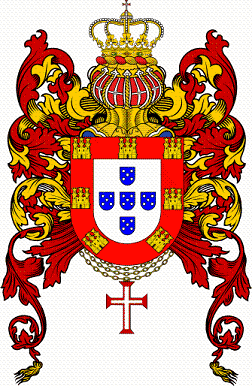






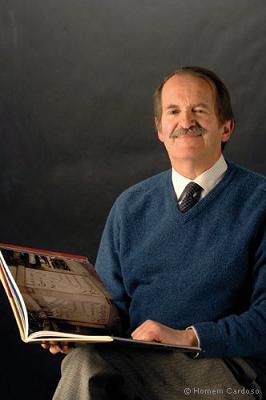


-JM.jpg)
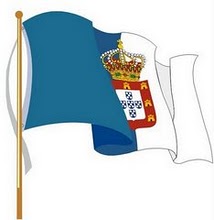
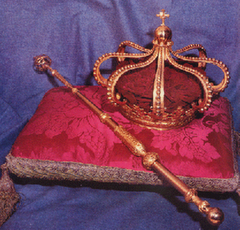
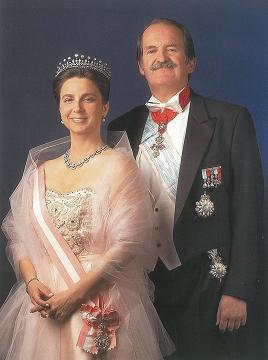
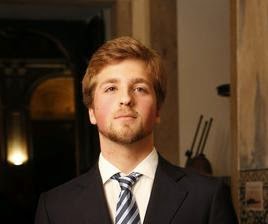


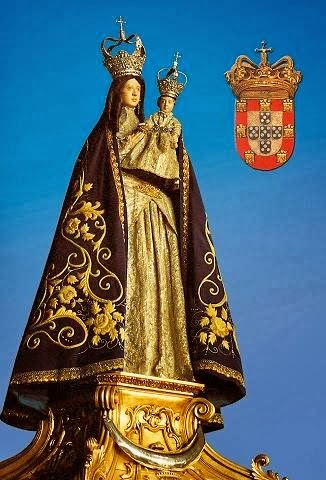
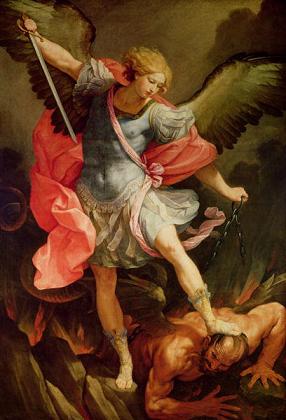


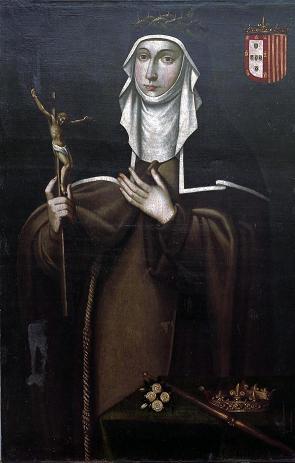








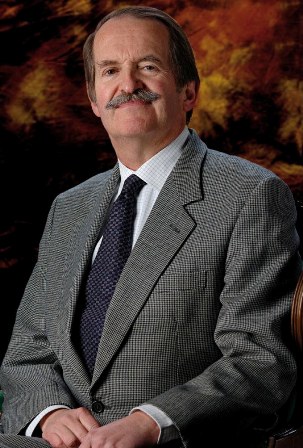
.jpg)
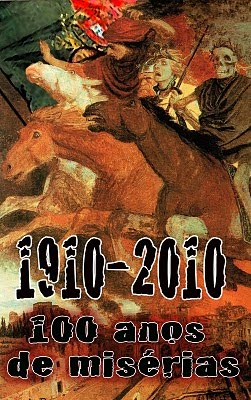


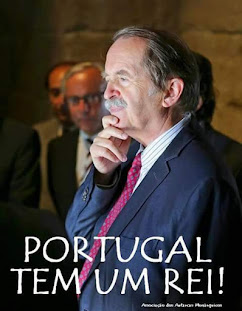




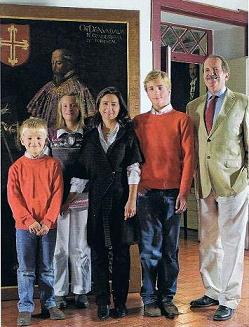
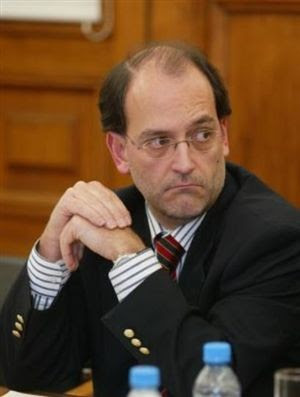
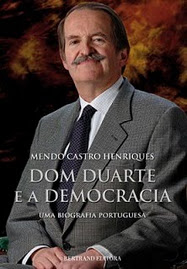
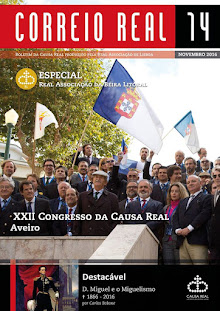
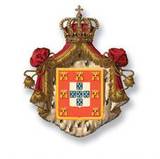


.jpg)



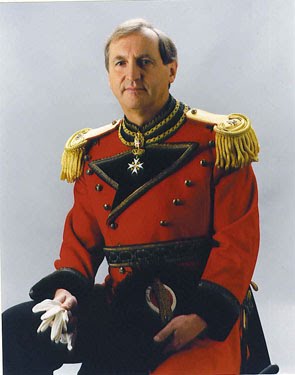




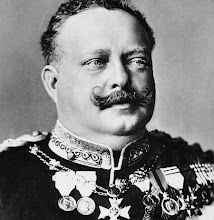





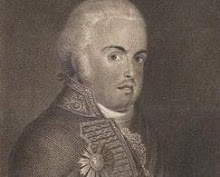













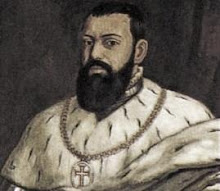





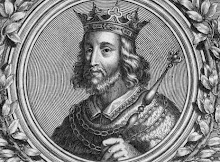


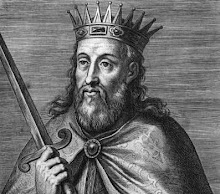

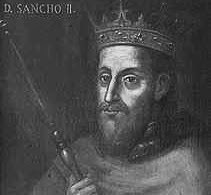

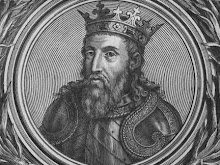
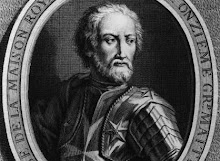




.jpg)



Great information !
ResponderEliminarThank you so much for sharing it. that's amazing!
Binding Financial Agreements lawyers Sydney